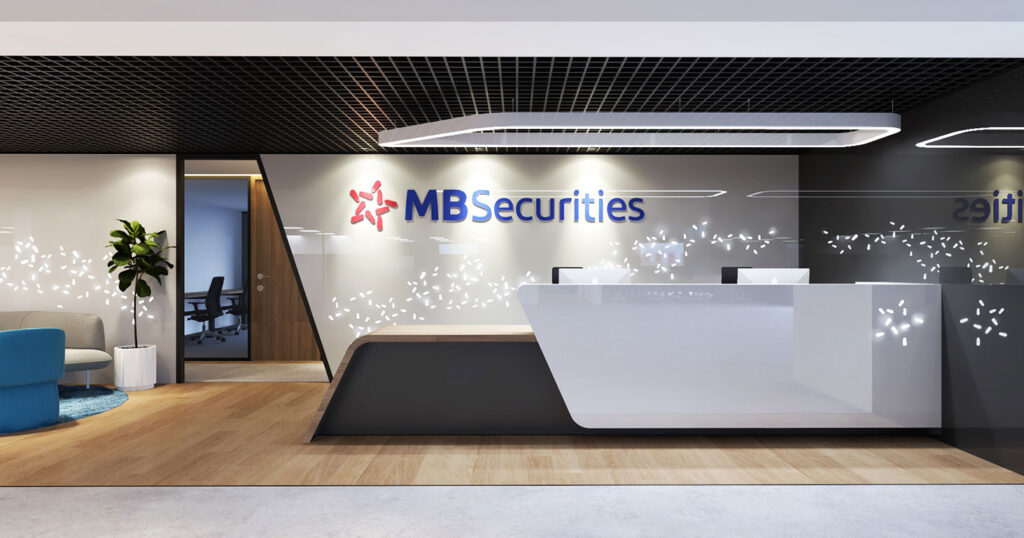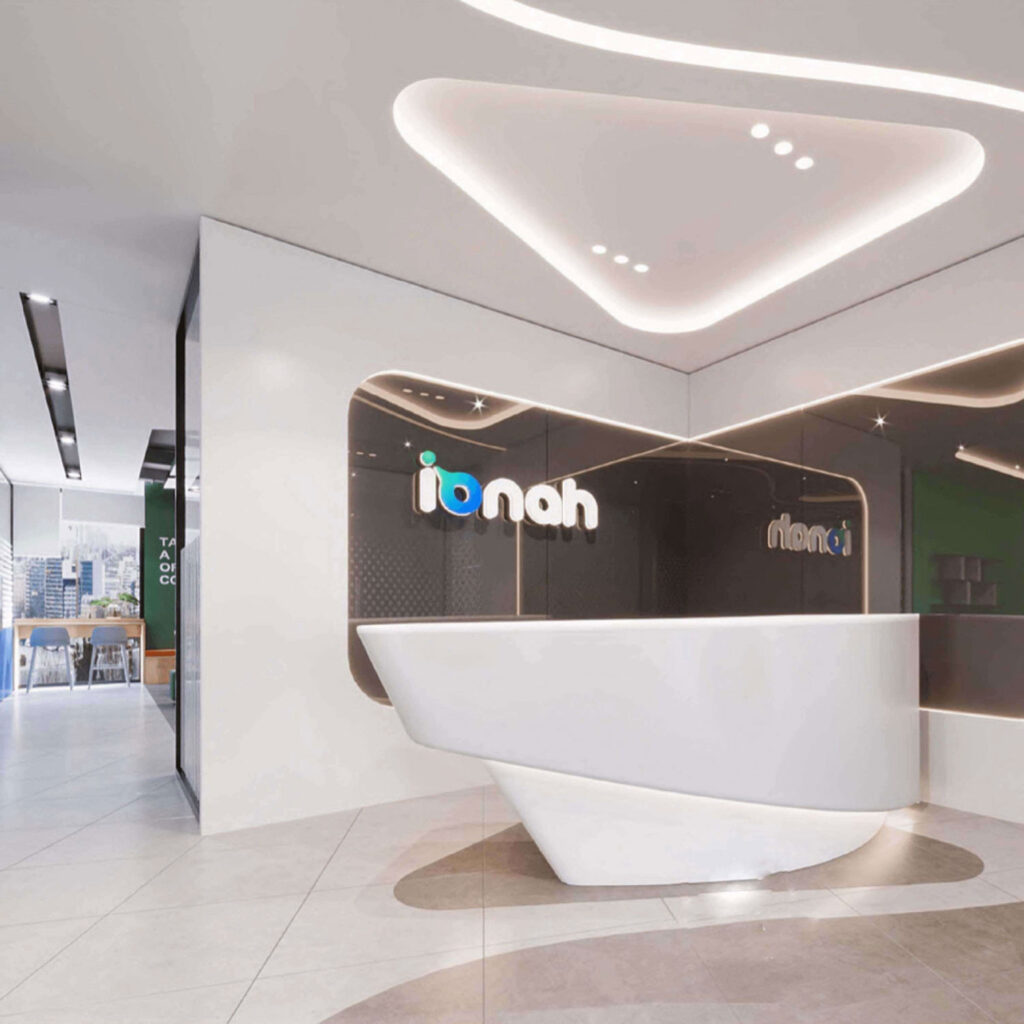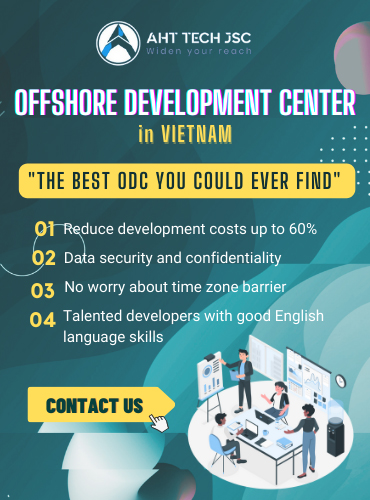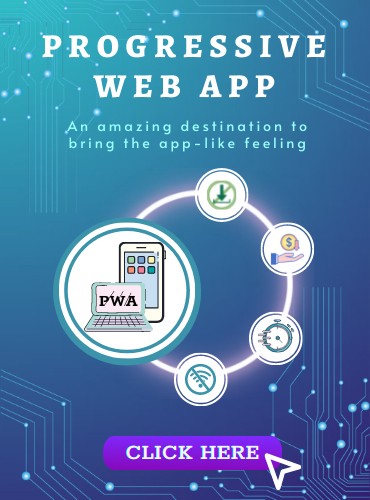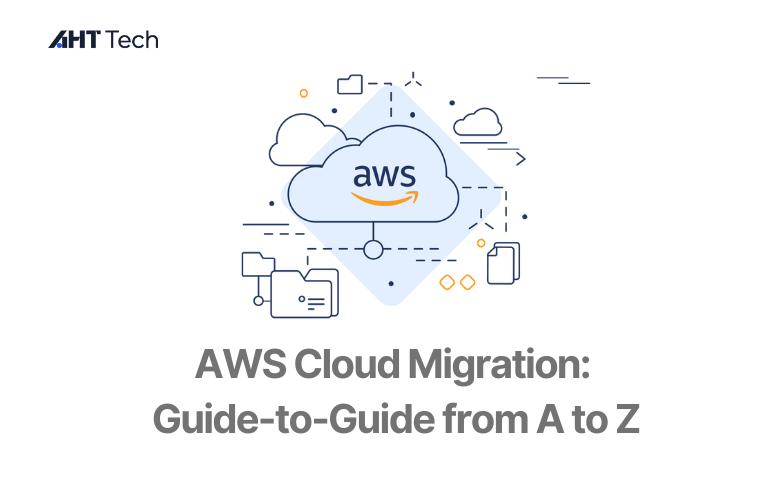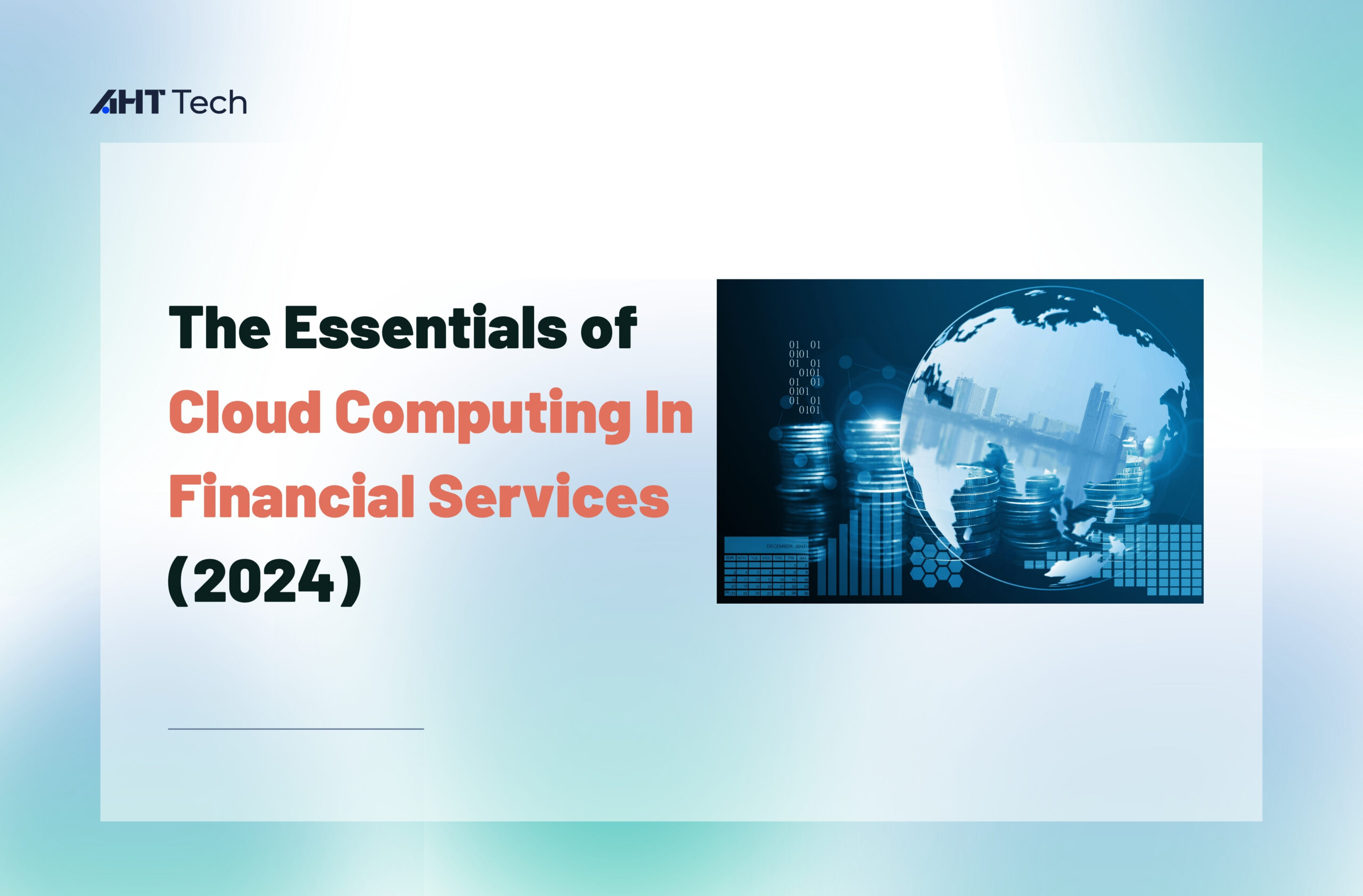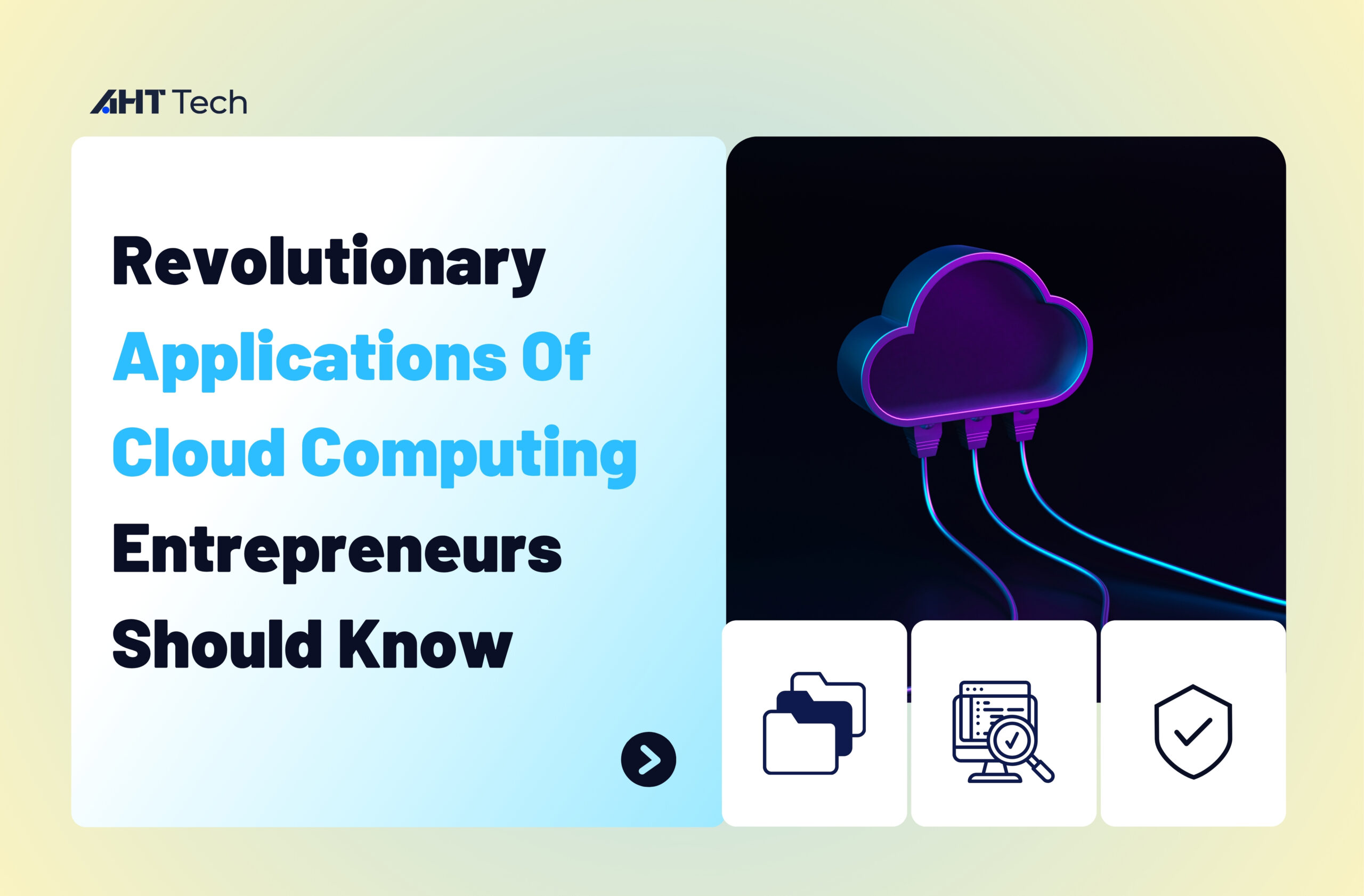In the retail area, ecommerce both comes with benefits and drawbacks. Despite the many benefits of ecommerce, the market has become so competitive, and maintaining old IT stacks has become so expensive. As a result, merchants are unable to maintain control over their data, analytics, and user experience. In terms of headless ecommerce platforms, they aren’t a new concept. Companies can quickly respond to disruptive market developments thanks to headless ecommerce, launching new products and services to compensate for lost income. In this article, AHT Tech will bring you the top of best platforms you should know in 2023. So, let’s explore with us right now!
What is a headless ecommerce solution?
In terms of headless ecommerce, the front-end and back-end of a website are separated. Simply speaking, they are self-contained, with the content presentation layer separated from the business logic layer.
In addition, a headless ecommerce platform is a system that exposes all functionality and data via individual APIs, ideally on top of a microservice. Moreover, merchants can offer new client touch points without having to rebuild their ecommerce website thanks to headless ecommerce software’s API-first strategy.
Who will get the most benefits from these platforms?
The headless strategy is ideal for businesses with significant growth potential. Owners will need to enhance online capabilities as the project progresses. As a result, it will improve customer service, fulfill more orders, or introduce additional payment ways. This is where headless ecommerce solutions come in handy.
Alternatively, you will get the most out of headless ecommerce software if:
- An omnichannel company strategy is required: Do you sell through a variety of channels? Is your company’s merchandise available in other countries? Besides, customers will have rapid access to the channels they use for online purchasing thanks to headless ecommerce architecture. From that, it allows you to organize all available content and product information together.
- You already have a CMS yet want it to be more flexible: A RESTful API can be added to allow for the efficient delivery of content via any available channel.
- Besides, You wish to enhance your customer service standards: In fact, traditional software-as-a-service (SaaS) solutions do not always match the expectations of customers. You can experiment with personalisation, power your website with AI. Besides, you are able to analyze the techniques that drive the greatest conversions with the headless ecommerce platform. Furthermore, by increasing the flow of organic traffic to your sales channels, you can lower your client acquisition costs.
Main differences between Headless ecommerce vs Traditional ecommerce
Companies need to think about utilizing the finest headless ecommerce platforms instead of traditional ecommerce frameworks. Following that, they must revise, supplement, and replace old systems on a regular basis, wasting thousands of dollars and man-hours. Between two concepts, there are main distinctions as below:
- First and foremost, traditional ecommerce is far more straightforward to set up. You just need to choose a platform, select a theme, and populate it with products and content. Besides, the biggest challenge here is connecting all of the modified functional pieces. In particular, in some platforms, this takes just a little more time, while in others, it requires a programmer’s input.
- Secondly, when coming to headless ecommerce architecture, the entire frontend is designed from the ground up. In reality, this necessitates additional time and effort in terms of configuration. As a result, you will have a lot more customization options and modifying flexibility. Additionally, the benefit of this is that headless ecommerce can be adapted to various devices and user requirements. Overall, in case you want to deliver something completely authentic inside and out, going headless is the best choice. You may certainly tweak a pre-made template, but it would surely be more logical to create something unique from the start.
Types of headless ecommerce architectures
As we mentioned above, the front-end and back-end of headless ecommerce are separated. Hence, they are modified and updated separately. Besides, headless ecommerce architecture allows you to keep brand product information in the backend. Then, it utilizes APIs to move it across many platforms, including the shop website, PWA, Amazon, smartwatch, and other sales or marketing channels. Now, let’s see the main types of headless ecommerce architectures:
1. Pure headless commerce architecture
Although the technology has a working backend, it lacks a frontend. For more details, this method offers the most freedom, allowing interface designers to adjust and customize the frontend as they see fit. Besides, creating such interfaces from scratch can be costly and time-consuming, delaying the release date.
2. Pre-built headless ecommerce architecture and APIs
In fact, this is a pre-built version that includes a backend and APIs that have already been established, as well as interface templates. Plus, because the API has already been built, this type enables for a faster time to market when adopting an omnichannel approach. What’s more, turnkey solutions that include a full range of services come with additional expenses.
In short, since APIs and API-led connectivity are at the heart of headless ecommerce, your store’s architecture will be extremely straightforward.
Key features of headless ecommerce platforms
API First Approach
The design and development of the Application Programming Interface (API) comes before the implementation in an API-first approach. In fact, this differs from the typical code-based approach. Besides, any change in the code-first strategy necessitates a lot of rework, long delays, and never-ending labor for your development team. What’s more, the expenses quickly mount up. Moreover, the API-first strategy begins with the development of the application interface, which is then used to construct the rest of the program. Additionally, the rest of the application, as well as any future applications, can come together by adding new features as an independent service accessed via API. Furthermore, an API-first approach can assist you manage the complexity of working in the cloud in a cloud-based architecture.
Omnichannel experience
Is there a true omnichannel experience with your product? Plus, is it possible to publish and share your material with new technologies such as mobile, IoT, and other?
Customization
What level of customization is possible with the headless solution? Besides, is it possible to adapt the platform to match your brand’s design language and tone?
Support
What degree and type of assistance is available? Is it accessible 24/7? What’s more, are there any user guides or knowledge bases? Is there a supportive community for users?
What are CMSs that support headless eCommerce integrations?
1. Contentful
The first CMS you must know is Contentful, which is a content-focused platform for the next generation. It is suitable for teams who need to consolidate content-related tasks into a single location. It structures content for numerous channels and platforms using open APIs and extensive integration capabilities.
2. Adobe Experience Manager
Adobe Experience Manager is a web-focused content management solution for enterprises. Simply speaking, it enables for the creation, management, and optimization of the customer experience across all channels.
3. Amplience
The next CMS that supports headless ecommerce integrations you should know is Amplience. It is a headless, API-first content management platform that gives B2C and B2B businesses the freedom to do more.
4. Acquia
Acquia is a Drupal-based open-source digital experience tool that lets you develop, manage, and optimize all of your digital experiences from any one location. Thanks to it, you may develop best-in-class digital experiences across all channels using a set of CMS solutions and capabilities.
5. Kentico
Kentico CMS is a web content management system that may be used to develop websites, online stores, intranets, and social networking sites. Besides, it is compatible with Microsoft Azure and runs on ASP.NET and Microsoft SQL Server. What’s more, Visual Studio and Microsoft MVC are the app’s recommended development environment.
6. Sitecore
In terms of sitecore, it is a leading digital experience platform that enables you to create seamless, personalized digital experiences. It includes a.NET-based CMS and digital marketing tools. Furthermore, the Sitecore Experience Platform (XP) is the company’s flagship product, which combines the Sitecore Experience Manager and Sitecore Experience Database (xDB) with a powerful content management system (CMS).
7. Prismic
The Prismic Content Management System is a web-based content management system. Basically, it is a platform that lets you pick your technology, operating system, and language before conveniently managing your information.
8. Vue Storefront
Vue Storefront is a headless and backend-agnostic Progressive Web App for ecommerce written in Vue.js. Its headless architecture allows it to connect to any ecommerce platform. Therefore, it enables you to serve as a PWA frontend for Magento, Shopify, BigCommerce, and WooCommerce.
9. Directus
Directus is an open-source technology that encapsulates a dynamic API with bespoke SQL databases and manages the content using an intuitive admin UI. Plus, for better control over omnichannel digital experiences, the CMS can be self-hosted or deployed to an on-demand cloud.
10. Strapi
When it comes to Strapi, it is a Node.js-based open-source headless platform. The CMS’s best feature is that it makes content available through a fully customisable API. Best of all, it helps you create useful, production-ready Node.js APIs for your real-world projects.
11. Sanity
Sanity Studio is a headless real-time platform that can be customized with JavaScript and React. Moreover, effective editing, a stunning user interface, flexible layouts, and the architecture of plugins and custom input modules are just a few of the standout features.
12. ButterCMS
ButterCMS is a headless platform that reduces or eliminates the need for CMS backend configuration, hosting, and setup. Besides, it offers a simple REST API for content editors, as well as a clean and user-friendly UI.
13. Craft CMS
Coming to Craft CMS, it is a user-friendly, versatile content management system for creating unique digital experiences for the web and beyond. Content development and administration operations are controlled via a user-friendly, simple control panel. Additionally, Craft CMS also includes its own CraftCommerce ecommerce module, which provides unique ecommerce features. Alternatively, it can be used to create ecommerce sites that are precisely tailored to your company’s requirements and specifications.
14. Netlify CMS
For static site generators, Netlify CMS Content Management Systems are the best choice. With a static site generator, non-technical individuals can still easily change and add content. What’s more, the MIT License applies to Netlify. Hence, you need to make sure that you are aware of the implications and assurances.
15. Cockpit
If you require a flexible content structure but don’t want to be limited in how you use it, the Cockpit is the most ideal option. In fact, it is a wonderful fit in case you wish to support many devices or require a content management UI for static site constructors.
16. Contentstack
With Contentstack, you can easily incorporate your favorite marketing tools without being bound by a collection of tools. Following that, you must set up and track workflows and approvals to connect content management and publishing to your business operations. Furthermore, it allows content editors to create and edit dynamic pages without the assistance of a developer.
17. DatoCMS
DatoCMS is a cloud-based, headless CMS that can be used to create static web pages, mobile apps, and server-side applications. In particular, it gives users without technical knowledge and team members access to a web-based CMS where they may manage the content of their digital products.
18. GraphCMS
Can’t help but mention GraphCMS when it comes to the topic of CMSs that support headless eCommerce integrations. It is the world’s first native GraphQL API-First Headless Content Management System (CMS). In reality, it allows teams all over the world to rapidly build and deliver the digital multi-channel experiences of the future on a large scale. Besides, the main goal of creating it is to generate a GraphQL back-end host that includes the technologies needed for modern omnichannel content management. Best of all, it works with any front-end technology, including React, Angular, and Vue.
19. Storyblok
Storyblok connects content creators and developers without forcing them to use a specific technology. Its primary purpose is to make the site more efficient in terms of creation and maintenance. Plus, the main goal is to allow content creators to write posts, stories, and even landing pages on a single platform while also allowing developers to access data via a performant API in well-structured content.
20. Core DNA
For anyone who doesn’t know what Core DNA is, it is a premier digital experience platform (DXP). It was built from the ground up to help mid-market companies achieve their goals for corporate websites, eCommerce, intranets, extranets, mobile, social, and online marketing.
21. Zesty
This CMS is a hybrid content management system that allows you to create APIs, custom endpoints, and more. What’s more, almost all static site generators are compatible with this.
22. TakeShape
The last CMS you can’t ignore is TakeShape. For more details, it is a cloud-based Content Management-as-a-Service platform. It uses an efficient Static Content Generator and a GraphQL API to reduce the cost and difficulty of building and maintaining a cloud-scale content experience. Besides, its infrastructure is serverless. Following that, it can handle whatever amount of traffic you throw at it since it scales up. Furthermore, AWS S3, FTP, Google Cloud Storage, and Netlify are all good options for deploying your website.
The best headless ecommerce platforms in 2022
1. Magento Commerce
When it comes to headless ecommerce platforms, the first one we highly recommend is Magento Commerce. Magento Commerce enables developers to create custom apps with a high level of flexibility based on the needs of the customer. Besides, experimentation can help with this personalisation. Moreover, Magento allows for experimentation because the systems are separated and do not interfere with each other’s activities. In addition, the decoupled architecture allows for rapid addition of new features and integrations.
Alternatively, the inventory management tools in Magento enable you to ship inventory to the appropriate store at the appropriate time. In fact, it allows you to track inventory levels properly across different locations such as warehouses, stores, dropshippers and so much more. Furthermore, you can get a live count of your stock that can be sold. Not only that, you can also customize management settings on a global, source, and product level.
Additionally, you may visualize critical data points in dynamic scatter and bubble charts with the help of the tool’s analytics dashboard. Plus, you can also obtain insights into average order value, lifetime value, retention rates, etc by exporting data directly to people’s inboxes.
>>> Read more : Headless Magento overview
2. The.com
One of the most outstanding headless ecommerce platforms you should know is The.com. Its site editor loads ahead of the actual site, bringing WYSIWYG (What You See Is What You Get) in order to a whole new level. Thus, this makes customizing the site’s appearance and feel extremely simple. Besides, the.com’s serverless hosting allows you to develop and modify your site without limitations while still keeping it fast and safe. Best of all, it is a go-to solution for fast-loading eCommerce sites. This is because it integrates with programs like Shopify right out of the box. Not only that, it also works well with Mailchimp, Typeform, Formstack, and other business software.
3. Shopify
In case you are seeking best headless ecommerce platforms for your ecommerce store, let’s have a glance at Shopify. Headless eCommerce from Shopify Plus allows you to isolate your front-end design from your back-end infrastructure. As a result, it enables you to publish to any channel and turn each device into a platform for your business. Besides, to create a consistent consumer experience, the headless commerce capability gives you complete creative control across all touchpoints. In particular, custom storefronts can be used to engage customers using your business software and content management systems.
Additionally, with a web app that interacts like a true mobile app, it can also help you speed up your site’s performance. Aside from that, you may link all of your business’s systems, including ERP, PIM, CRM, CMS, and design frameworks.
What’s more, Shopify Plus is well-known for its dependability. Plus, a streamlined content management system is included with the user-friendly dashboard. Furthermore, inventory tracking, exporting/importing inventory via CSV files, modifying inventory, and other critical duties are all part of inventory management.
Alternatively, you can also track conversions, average order value, store visits and so on by the analytics. In addition, all of the major marketplaces are seamlessly integrated with the product. Best of all, Stocky, Apple Business Chat, Oberlo, Google Sheets, Mailchimp, Wave, Airtable, Slack, and 3k additional critical business growth tools all operate effortlessly with it. Not only that, chat as well as email support are also available. In particular, with any basic questions, you can ask a rich knowledge library and an active community forum for help.
>>> Let’s refer to: Headless Shopify overview and examples
4. BigCommerce
Coming to the topic of best headless ecommerce platforms, we can’t help but mention BigCommerce. First of all, BigCommerce is a market leader in the eCommerce area, with full-service capabilities that cover everything you need to establish an online store. Moreover, it includes product listing, customer segmentation, payment processing, cart recovery and so much more. Alternatively, the presentation element of its headless eCommerce features is isolated from the commerce engine. This allows you additional flexibility to establish and manage many stores from a single BigCommerce account through diverse front-end solutions.
Plus, the headless ecommerce platform from BigCommerce allows you to deliver API-driven experiences through your CMS, application device, or custom front-end. Using the BigCommerce API, you can develop consumer experiences across several platforms. Additionally, its SaaS’ basic components are available to link to any other environment. Overall, this is useful for things like customizing the cart and checkout experiences, etc.
What’s more, it offers a WordPress Plugin that is worth considering. To put it plainly, it eliminates hiccups without slowing down the website. Best of all, BigCommerce works with all of the major online markets, including Amazon, eBay, and Google.
Alternatively, it has established itself as an all-in-one solution that addresses all aspects of running a contemporary eCommerce business. Customer segmentation, payment processing, abandoned cart recovery, and more features are available. Furthermore, the site editor allows you to quickly alter and adapt the platform to match your brand’s tone of voice. In particular, the support team is always ready via email or phone 24/7. And, there is a knowledge base to help you find answers promptly.
>>> Read more: Bigcommerce headless introduction and best practices
5. Contentful
Contentful is a next-generation headless ecommerce platform with a decoupled architecture and agile workflows to help you go to market faster. It allows teams to consolidate information into a single hub and organize it for distribution across all digital channels. Besides, it can arrange content for numerous platforms and channels using open APIs and powerful integration features.
Moreover, it offers a simple user interface and multiple space support. For organizations that require different projects for development, staging, or production, this can be extremely beneficial. What’s more, it also offers well-organized, adaptable data models with support for a wide range of data types and content editors, including a WYSIWYG editor, raw text areas, and form fields. Furthermore, there are many other business programs that are all integrated with Contentful including Dropbox, Jira, Google Analytics, Commercetools, etc. Best of all, it uses a ticketing system for support. Not only that, it also comes with plenty of documentation, user guides, and a helpful community to assist you.
6. OroCommerce
If you are looking for headless ecommerce platforms for your website, let’s take a look at OroCommerce. It was created by the same leadership team that created Magento and specializes in B2B solutions. However, this platform can meet any B2B, B2B2C, B2B2B, or B2C eCommerce requirement. Besides, its inventory management features allow you to manage many websites and warehouses. Moreover, catalogs can be customized as well as pricing can be changed.
To put it plainly, OroCommerce is a platform that supports both headless and traditional eCommerce. Hence, it allows you to take your brand across the web and mobile. Additionally, it is based on an open-source concept and has a thriving community that is always willing to help one another. Furthermore, you can keep your eCommerce and ERP systems in sync with OroCommerce. Not only that, it seamlessly connects with CRM systems (like Salesforce) and ERP apps (like SAP).
7. Acro Media
The next headless ecommerce platform you should consider is Acro Media. For more details, it is a Drupal-based eCommerce platform development firm that strategizes, designs, and delivers eCommerce products. It uses an agile methodology to help you form collaborative collaborations. Their team can assist you in developing headless eCommerce platforms that streamline workflows, interface with third-party providers, and enhance consumer experience. Furthermore, they provide experience-driven architecture and an API, as well as a staff of many full-time Drupal developers. Best of all, phone, email, and live chat support are all available.
8. Kentico Kontent
Can’t miss Kentico Kontent if you are finding awesome headless ecommerce platforms for your site. Firstly, Kentico Kontent is a headless CMS that enables you to freely install new applications that set you apart from the competition. Plus, it creates websites, online storefronts, and web 2.0 community sites using ASP.NET and Microsoft SQL servers as a web content management system. What’s more, the app’s development environments are Visual Studio and Microsoft MVC.
Additionally, it generates content from anywhere using a cloud-native content management system that requires no maintenance or downtime. With features like inline ideas, tasks, and reviews, it allows you to interact across your business. Best of all, all of these aspects contribute to your team’s expertise being maximized.
Alternatively, it doesn’t offer inventory management. Besides, it also integrates with HubSpot, Magento, Shopify, Slatwall Commerce, and other platforms out of the box. In particular, support service is always ready 24/7. Then, you are able to also use a ticketing system to submit your concerns.
9. Commercetools
Commercetools is an omnichannel eCommerce platform that builds a basis for evolutionary eCommerce architecture using headless eCommerce technology. It provides cloud-based point-of-sale capability. Besides, its cutting-edge API approach enables merchants to raise brand awareness by delivering compelling consumer experiences across many channels, while also making new channels future-proof. Moreover, it also manages the data flow and user interaction between front-end client and back-end ERP systems. Alternatively, you don’t need SQL or any other customisation with its fully equipped API platform. Best of all, APIs cover all of the relevant functions.
In short, the solution has all of the critical tasks required to manage an eCommerce business, as well as the flexibility to develop and add new features as needed. Furthermore, it includes inventory management capabilities such as inventory tracking, inventory adjustment, returns management, and multi-store management. Contentstack, Cybersource, and Frontastic all work seamlessly with this platform. Plus, DXPs and front-end CMS systems such as Bloomreach and Adobe Experience Cloud are also supported out of the box. Not only that, you can access a live chat box for assistance anytime you need.
10. Salsita Software
Last but not least, Salsita Software is a flawless headless ecommerce platform you can take a look at. This company has more than a decade of expertise developing smart, modern online and mobile applications. It employs a user-centered design strategy that prioritizes product quality while decreasing development time and expenses. Moreover, it focuses on developing systems that provide quick load times, complete front-end customisation, individualized customer experiences, more flexibility, and a true omnichannel experience. As a result, all of this saves you money and enhances your website in the future.
In conclusion
Overall, creating, managing, and disseminating content is a crucial aspect of any organization that wants to stay competitive online. Using the right headless ecommerce platform for your organization, you can effortlessly give an iconic digital experience to your customers. AHT Tech hopes you can choose the most ideal platform for your ecommerce business.
Not only that, if you have any problem on the topic of headless ecommerce or are finding an excellent solution for your site, let’s take a look at our Digital Commerce Services. What includes in our services? Exactly, anything you need to make sure that your site always achieves the best business outcomes. Please CONTACT US for a free consultancy.
